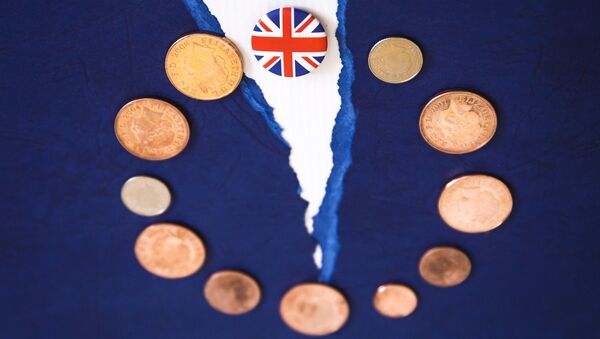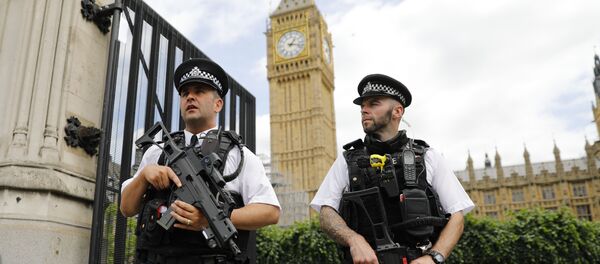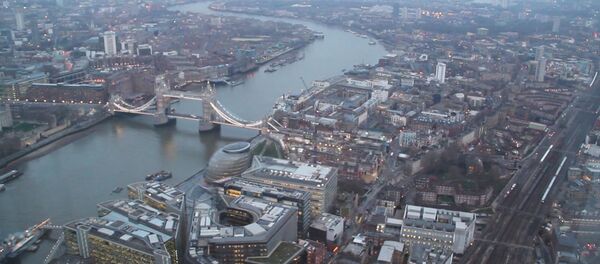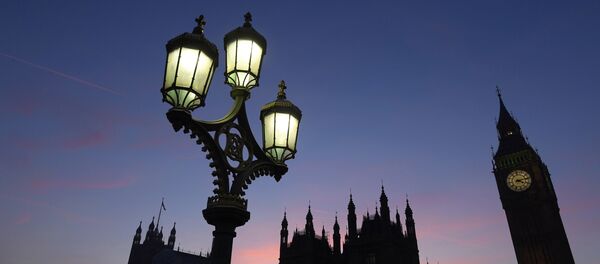The terms of the UK’s withdrawal from the EU have been under discussions for months, and not without difficulties. Last November, the EU and the United Kingdom nevertheless managed to agree on the conditions of the divorce deal, as well as on the Political Declaration, which sorts out the framework for the future relationship.
However, this agreement must be ratified by the parliaments of both the EU and the United Kingdom in order to enter into force. So far there are difficulties with this in the country.
Ongoing Contact
"We know from yesterday’s debate that the House of Commons is against many things. It is against a no-deal Brexit. It is against the backstop", European Commission President Jean-Claude Juncker said on Wednesday.
READ MORE: EU Opposes UK's Brexit Deal Revision Despite Theresa May's Readiness for Talks
However, according to him, it is still not clear what exactly the House of Commons stands for.
"I will continue to be in close contact with Prime Minister May – for whom I have the greatest respect – and I will listen to her ideas. But I will also be extremely clear about the position of the European Union", Juncker said.
No, No And No
According to the EU’s lead Brexit negotiator Michel Barnier, who also spoke in the European Parliament on Tuesday, May openly advocated for the revision of the divorce deal.
"The Withdrawal Agreement remains the best and only deal possible … The debate and votes in the House of Commons yesterday do not change that. The Withdrawal Agreement will not be renegotiated", Juncker added.
The head of the European Commission recalled that the EU had repeatedly raised this issue.
READ MORE: Pro-Brexit, No-Deal Crusade by UK Pub Chain Boss Leaves Bitter Taste for Some
In turn, Barnier stressed that the backstop on the Irish border was part of the Withdrawal Agreement.
"The backstop is part and parcel of the Withdrawal Agreement and it will not be renegotiated", the chief negotiator said.
Stumbling Block
The Irish border issue has been the main reason why the UK parliament refuses to support the draft agreement with the EU on Brexit concluded by May.
The backstop, among other things, provides that the United Kingdom and the EU would form a single customs territory, which will allow abolishing customs duties, quotas and so on.
The Union’s Customs Code (UCC), which determines, among other things, the provisions for releasing products into free circulation within the EU, will continue to apply to Northern Ireland. This is done to ensure that Northern Irish businesses do not face restrictions when supplying products to the EU’s Single Market, which neighbouring Ireland is part of.
READ MORE: Ireland in Tune With EU in Rejecting London's Plea for Brexit Deal Revision
After the draft Brexit agreement had been agreed upon, the extraordinary summit of the leaders of the 27 remaining EU countries in December last year stressed that the backstop was provided for in the agreements as a guarantee that there would be no real border between Ireland and Northern Ireland. The EU is committed to working on an additional agreement that would allow finding an alternative solution to this issue.
Thus, the EU wants to make sure that this backstop never happens at all.
"Ireland’s border is Europe’s border – and it is our Union’s priority", Juncker said.
Storm Clouds Are Gathering
"Hard" Brexit threatens to erupt in unforeseeable economic consequences not only in the United Kingdom, but also in the EU itself. For example, Bank of England Governor Mark Carney said earlier that in the event of such a "divorce," the country’s port and border infrastructure would have to restructure from a seamless trading environment to a one with customs and other barriers, such as rules of origin of products, safety standards and others.
READ MORE: Most People in UK Would Prefer Not to Leave Without Brexit Deal — Scholar
Juncker noted the need to continue to do everything possible to prepare for all Brexit scenarios, including the worst ones. He added that the European Commission began its preparatory work in December 2017.
At the same time, the head of the European Commission remains optimistic that the agreement with the United Kingdom will still be reached so that they can move towards new cooperation between the country and the union.







